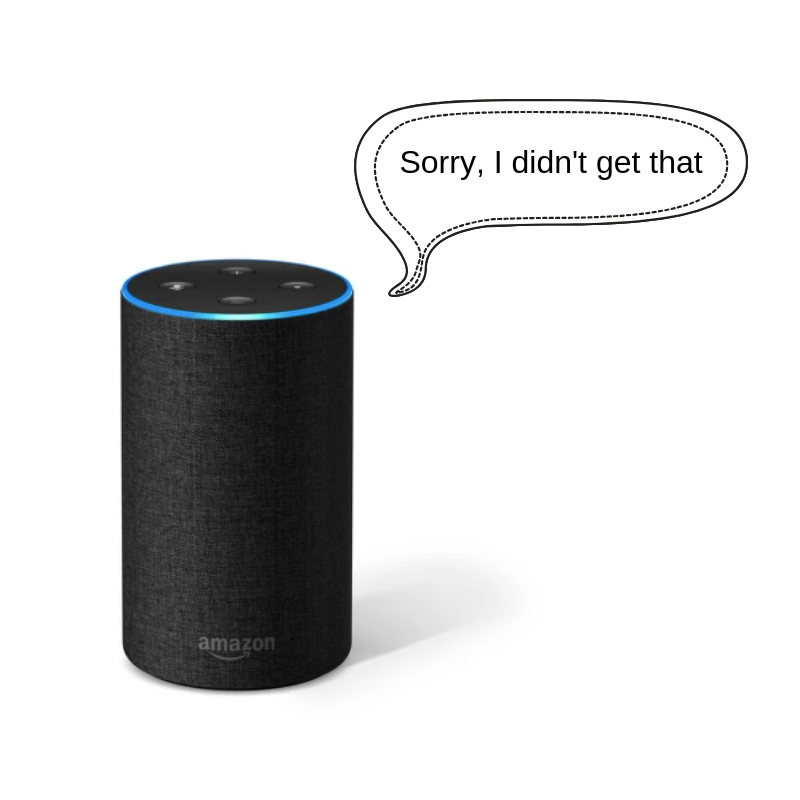Enter Voiceitt to the Rescue
Most of us have experienced the occasional “Sorry, I didn’t get that” response from our Alexa enabled devices. In her article “When Alexa Can’t Hear You” for Slate Magazine, Moira Corcoran points out an often unseen problem with the rise in smart-home technology, particularly voice-based technology like Alexa or Cortana (thanks to ARRM Technology Resource Center in MN for bringing this article to our attention). For many people with non-standard speech patterns due to illness, traumatic injury, or disability, getting these devices to understand what they’re saying proves difficult. That’s because systems like Alexa use machine learning to teach their software how to understand spoken words by feeding it data from thousands of users. Most of the users that systems like Alexa get their data from have standard speech patterns. But when these systems are only programmed to recognize these common patterns, they aren’t able to understand non-standard speech patterns of people with speech disabilities.
Corcoran also mentions a company working toward a solution for this problem, Voiceitt. They’re developing software that recognizes irregular speech patterns and pronunciation so that individuals who don’t pronounce words the same way as most people can still get all the benefits from their smart devices (video how it work). Disability Cocoon’s Dustin Wright sat down for an interview with Voiceitt’s Danny Weissberg during which he broke down Voiceitt’s plan to make this technology more accessible.
They are currently beta-testing (think soft-open of a store or restaurant) the first generation of their app, which works on smartphones and tablets. The first generation of technology requires users to record words/commands they wish to use on their device so the device can respond to each individual’s specific speech. Sometimes it takes a while to get the commands recorded, but training Voiceitt to understand one individual’s pattern of speech means that it doesn’t matter what language you speak, Voiceitt simply listens to the sounds and executes the command. Additionally, even individuals with speech patterns that are far from standard can use their smart devices with this generation of Voiceitt.
The second generation of Voiceitt is already being developed. This generation only requires that users record a sample of their speech reading certain sentences. After a user reads these sentences to Voiceitt, the app will be able to understand other words or commands that aren’t part of those sentences. It will learn how the individual speaks. This means no more training the app to respond to every command.
Their third generation, though still in the distant future, will use the data collected from Voiceitt users to generate software that understands common types of non-standard speech among certain populations. For example, if many people with Down Syndrome use Voiceitt, the app will be able to see if there are any common ways those people pronounce words and phrases. That way it will already have some understanding of how people with Down Syndrome speak, removing the need for users to train the app themselves.
To sum it up, the growth of technology and the convenience that comes with it is exciting, but we need to remember that when it comes to technology, if we’re not doing all we can to make it accessible to people with disabilities, injury, or any other condition, then we’re not doing enough. That’s what inspires us about the people over at Voiceitt, they’re working to make sure everyone can enjoy the convenience of voice-based technology.
For people who want to see what Voiceitt is doing now, take a look at their page here. If you or someone you know is looking for a way to make Alexa or similar voice-recognition devices more accessible to people with non-standard speech patterns, let us know! Voiceitt will be expanding their beta-testing in the future and Disability Cocoon would love to try to get you in on it.

